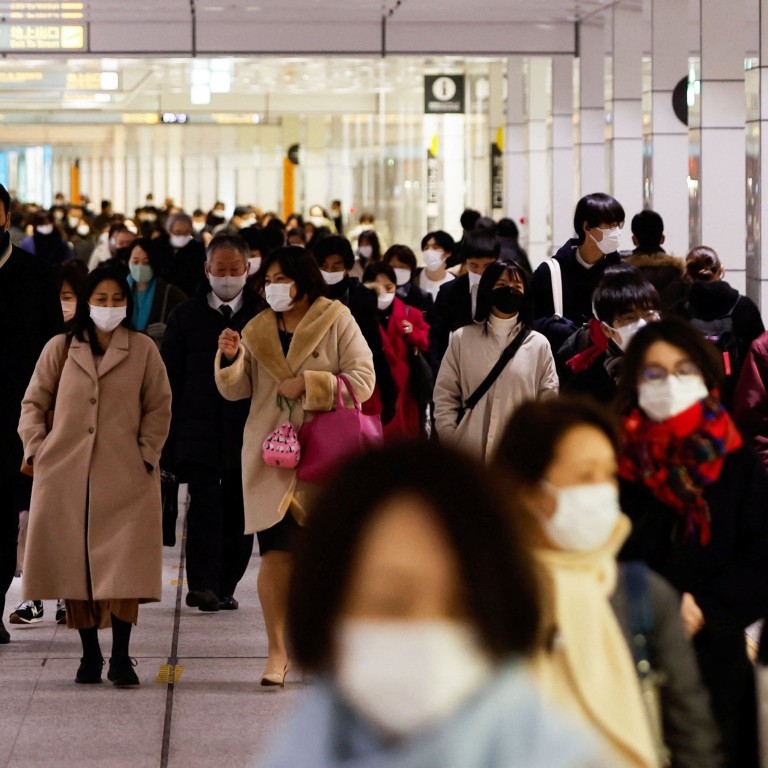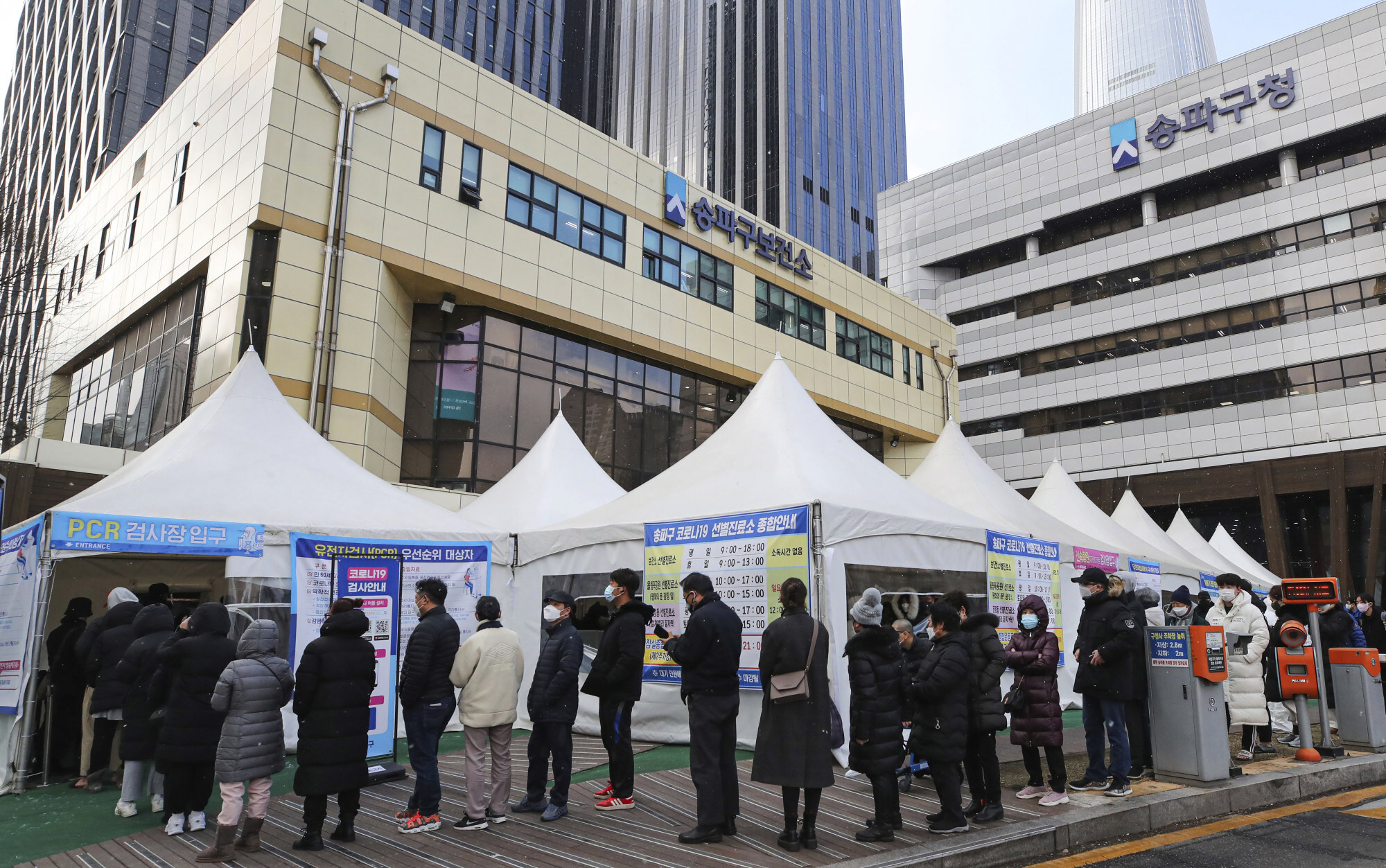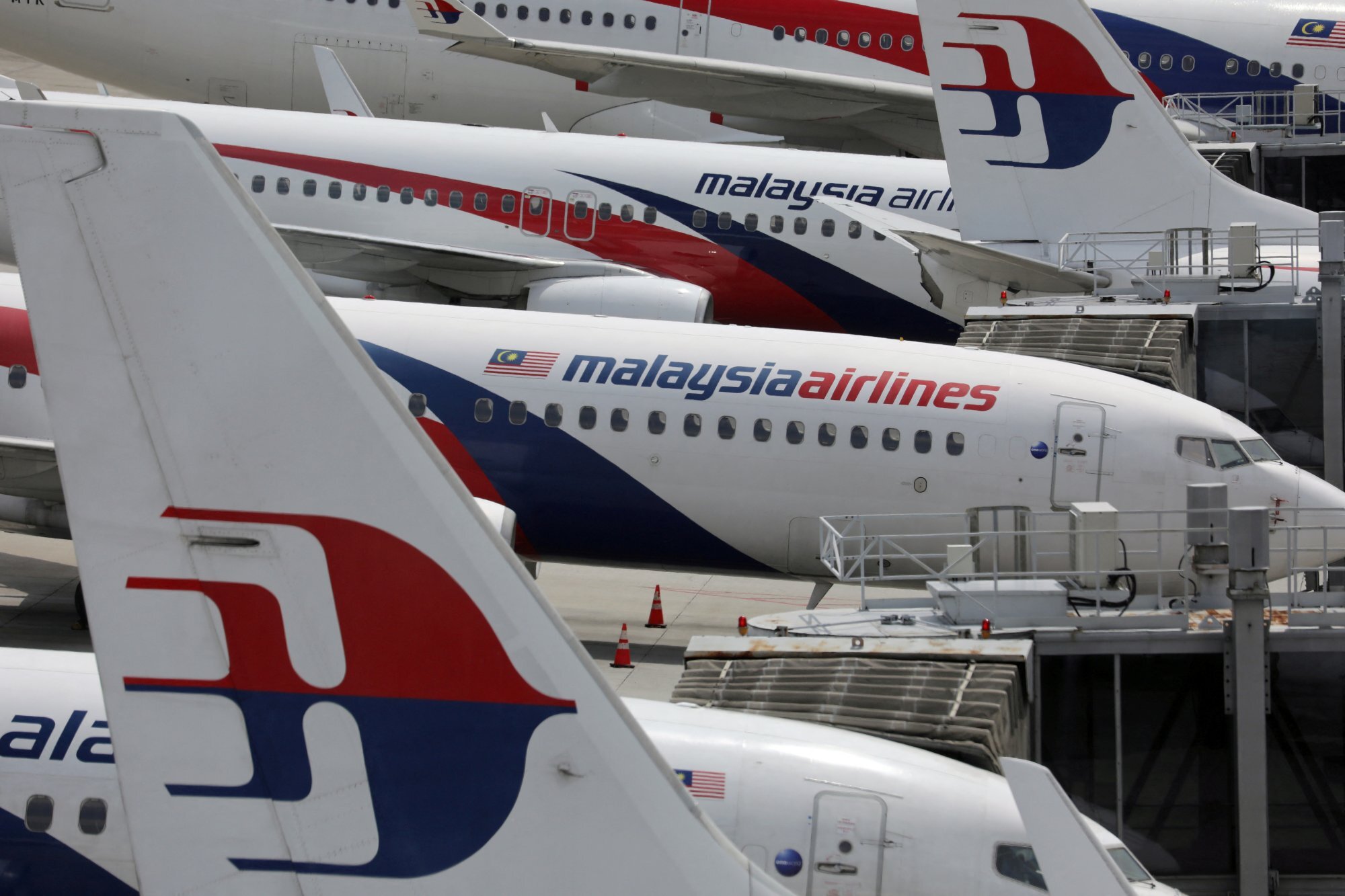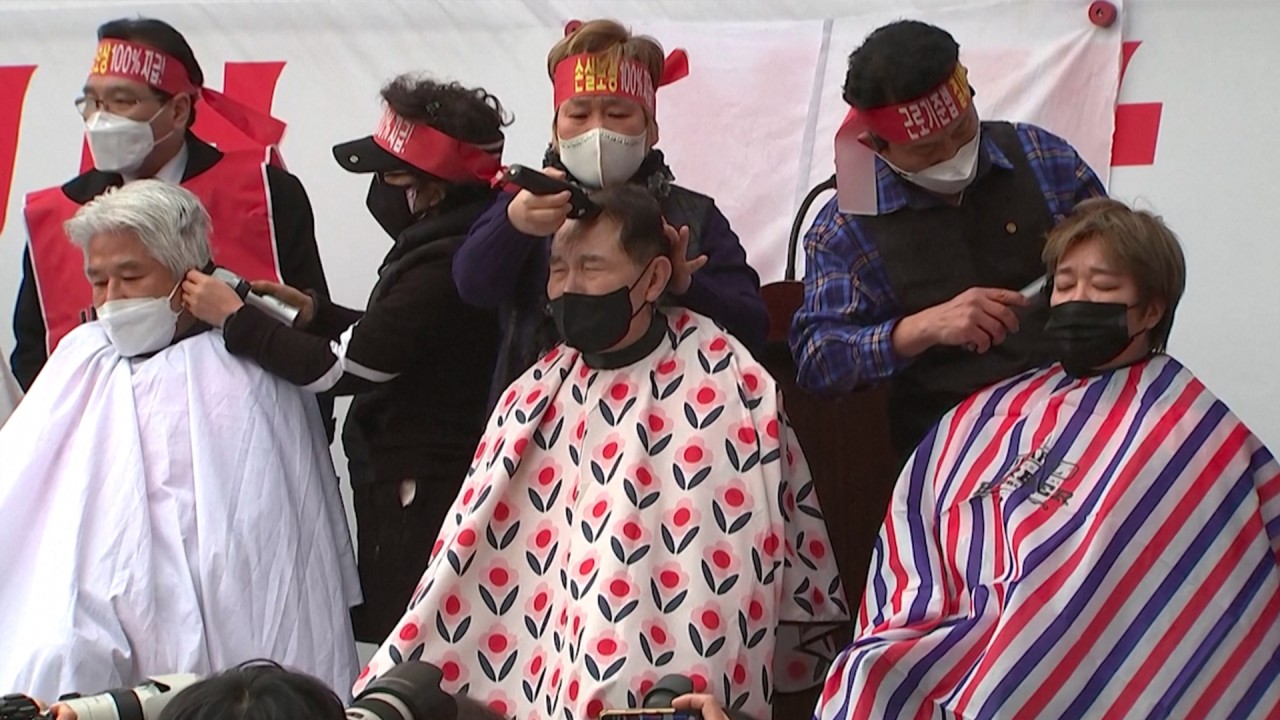
Coronavirus: Japan looks to ease restrictions even as citizens support border controls
- About 57 per cent of respondents to a survey said Japan’s ban on new entry by foreigners should continue, while 32 per cent said it should be loosened
- Elsewhere, Australia’s burnt out nurses strike, while South Korea reports its highest number of Covid-linked deaths in a month
Business groups are calling for an easing of the measures – set to continue until the end of February – which they say are hampering economic activity.
Hongkongers rue cost of ‘washouts’ to return to city battling spike in local cases
Kishida has said imposing the strict border restrictions helped delay the spread of the Omicron variant in Japan, allowing more time to understand its effects.
Polls showed his move was initially backed by almost 90 per cent of the public, an important consideration for the premier ahead of an upper house election set for July.
Omicron has nonetheless spread rapidly in Japan in recent weeks, triggering the worst infection and death rates since the pandemic began. It has weighed on support for Kishida’s cabinet, which fell to 54 per cent from 57 per cent the previous month in the NHK poll.

Japan’s death toll from the virus of about 20,500 is by far the lowest among the Group of Seven nations, with the tally at more than 922,000 in the US
Almost 80 per cent of Japanese have received two vaccine shots while only 9 per cent of the population had received a third dose as of Monday. Kishida has pledged to step up the pace to a million shots a day within this month.
While Kishida’s government has not given details of how it plans to ease the border controls, the Nikkei newspaper said it was looking to simplify procedures for business visitors, including by shortening quarantine periods.
Meanwhile, some 150,000 foreign students who hold Japan visas were unable to enter the country by the end of last year due to its strict Covid-19 border controls, the top government spokesman said Tuesday.
Chief Cabinet Secretary Hirokazu Matsuno also disclosed at a regular press conference that the number of people newly entering Japan from November 29 to February 10 was about 6,000.
Matsuno said the government knows there are “various requests” regarding the measures and is considering presenting a plan to ease them “as soon as possible”.
His remarks came after the ruling Liberal Democratic Party asked the government to allow foreign students to enter Japan.

Pandemic-weary Australian nurses strike
Defying a strike ban, thousands decked in scrubs and surgical masks marched on the state parliament over what they say are intolerable conditions.
Throngs of nurses cheered, clapped and chanted their anger at persistent shortages of hospital beds, equipment and the grinding toll of this protracted crisis.
They brandished placards that read “Nurses are not coping” and “‘Thank you’ doesn’t pay the rent” – hitting out at political leaders who they accuse of ignoring their plight.

For two years, Australia’s medical staff have worked under strict Covid protocols, while trying to carry out day-to-day tasks and roll out an unprecedented vaccination programme.
But recent months have seen an explosion of coronavirus cases – bringing more patients and depleting the ranks as staff get sick or are forced to isolate.
“The community needs to hear the truth – current staffing levels are inadequate, unsafe and putting patients at risk,” said the New South Wales Nurses and Midwives’ Association.
Hong Kong public hospitals ‘overwhelmed’ by asymptomatic Covid-19 patients
In a statement, the New South Wales Health Department thanked nurses for working “tirelessly during the two years of the Covid-19 pandemic”.
But, it added, “there are more nurses and midwives in New South Wales public hospitals than at any other time in history”.
Arbitration had failed to head off the strike and the Industrial Relations Commission court had ordered that the industrial action not take place.
That order was rejected, and union organisers said further strike action is being considered.
Strict border closures and aggressive testing and tracing had meant Australia was Covid-free for much of the pandemic.
But the arrival of Omicron has resulted in tens of thousands of cases and dozens of deaths every day.
About 2.5 million cases have been recorded in Australia’s population of 25 million.
South Korean Covid deaths rise, hope rests on high booster rate
The 61 deaths reported by the Korea Disease Control and Prevention Agency on Tuesday was the highest daily tally since the 74 reported on January 19, when the country was emerging from an outbreak driven by the Delta variant.
While Omicron so far seems less likely to cause serious illness or death, the greater scale of the outbreak has fuelled concerns that hospitalisations and fatalities could spike in coming weeks.
Wave of K-pop stars test positive for Covid-19 amid surge in South Korea
The 57,177 new cases reported by the KDCA was another one-day record and more than a 12-fold increase from the levels seen in mid-January, when omicron became the dominant strain.
Park Hyang, a senior South Korean Health Ministry official, said the country’s hospital resources remain stable, with less than 27 per cent of intensive care units designated for Covid-19 currently being occupied.
Officials have expressed cautious hope the country’s high vaccination rate – with nearly 58 per cent of a population of more than 51 million having received booster shots – would prevent hospital systems from buckling. They plan to start offering fourth vaccination shots to people at nursing homes and other long-term care settings later this month.
“While unvaccinated people account for only 6 per cent of the population 12 years or older, these people have accounted for 62 per cent of serious cases and 66.5 per cent of the deaths over the past eight weeks,” Park said during a briefing.

South Korea has reshaped its Covid-19 response due to the unprecedented surge. It has significantly eased quarantine restrictions so essential services will not be disrupted by having huge numbers of people in quarantine. More than 245,000 infected people were being treated at home as of Tuesday, weeks after at-home treatment was made the standard for mild or moderate cases.
Testing practices are also now centred around rapid antigen tests, with the more accurate laboratory tests reserved mostly for high-risk groups. But there are concerns that infected people may falsely test negative and continue to stay out in public, which could worsen the spread of the virus.
“Compared to PCR (lab) tests, rapid antigen testing has limitations in accuracy. Our new testing policy is based on the thinking that such limitations must be tolerated as a trade-off for detecting serious cases earlier amid a major viral spread like this one,” Health Ministry official Son Youngrae said.
Pacific nation to reopen border after 2 years
Papua New Guinea will reopen to vaccinated travellers from Wednesday, ending two years of strict border closures that virtually sealed the Melanesian nation off from neighbours.
The country’s pandemic controller David Manning on Tuesday said he had revoked rules requiring approval to enter the country and mandatory quarantine.
Australia says ‘no evidence’ aid warship brought Covid-19 to Tonga
Some domestic restrictions will remain – including compulsory mask-wearing in markets, shops, on public transport and places of worship, as well as a 100-person limit on gatherings.
But religious and cultural gatherings that are vital to many Papua New Guineans’ lives are exempt.
The moves mark a new phase in the pandemic for a country that has often struggled to cope with high case numbers.

Papua New Guinea has officially recorded 37,390 Covid cases in a country of nine million people.
But testing and tracing are minimal and the real number is believed to be in the millions.
Hospitals have repeatedly been overwhelmed, a major sports centre had to be transformed into a field hospital and mass burials were approved.
About 4 per cent of the population has been vaccinated.
Prime Minister James Marape recently returned home from Beijing after a positive Covid-19 diagnosis scuppered plans for face-to-face meetings with Chinese leaders.
Philippines at ‘low risk’ from pandemic, says government
The Philippines is now at “low risk” from the coronavirus pandemic as more people get vaccinated and hospital admissions drop, President Rodrigo Duterte’s spokesman said on Tuesday.
The country last week reopened to foreign tourists for the first time in two years, though some health restrictions remain as campaigning for the May 9 elections starts, with political rallies seen as potential superspreader events.

“The National Capital Region and the entire Philippines now have a low-risk classification” in terms of case growth, prevalence and health system capacity, said Duterte spokesman Karlo Nograles.
After surges of the highly transmissible Omicron and Delta strains of the virus that led to government-enforced restrictions on mobility, hospital bed occupancy rates have eased to about 30 per cent.
Cases have averaged about 3,600 daily in the past week as the number of fully vaccinated people climbed to around 56 per cent of the population, health officials said.
After lengthy lockdowns which ravaged the economy and put millions out of work, the government is now planning for a lifting of all restrictions, Health Undersecretary Maria Rosario Vergeire said, without giving a time frame.
“When that happens, all restrictions will be lifted and everything will be under self-regulation,” she added.
The virus has infected more than 3.6 million people and killed more than 55,000, according to government data.
Malaysia, Brunei to waive quarantine requirement on travel for vaccinated
Neighbours Malaysia and Brunei will waive a quarantine requirement on travel between the two countries for people vaccinated against Covid-19, Malaysia’s prime minister said on Tuesday.
The vaccinated travel lane (VTL) will see the operation of four flights per week between Kuala Lumpur and Bandar Seri Begawan, Ismail Sabri said in a statement.

“A VTL to allow movement over our land borders are also being considered by both countries,” he said.
Malaysia has a similar arrangement with neighbouring Singapore.
Ismail Sabri provided no start date for the VTL and said details were still being studied.
Both governments have also agreed to recognise each other’s Covid-19 contact-tracing and information applications to facilitate travel, and to cooperate on research and development for vaccines, he added.
Vietnam’s tourism industry may reopen early
Vietnam’s tourism ministry on Tuesday proposed a full reopening of the country to foreign visitors and a lifting of nearly all travel restrictions from March 15, three months earlier than planned.
The proposal, which will be submitted to the prime minister for approval, follows similar reopening steps taken by other Southeast Asian countries like Thailand and the Philippines, where the Omicron variant has caused a recent spike in new infections, but fewer hospitalisations and deaths than previous variants.
The proposal includes maintaining a one-day quarantine requirement for visitors plus requiring negative Covid-19 tests before departure and on arrival.
Reporting by AFP, AP, Bloomberg, Kyodo, Reuters

